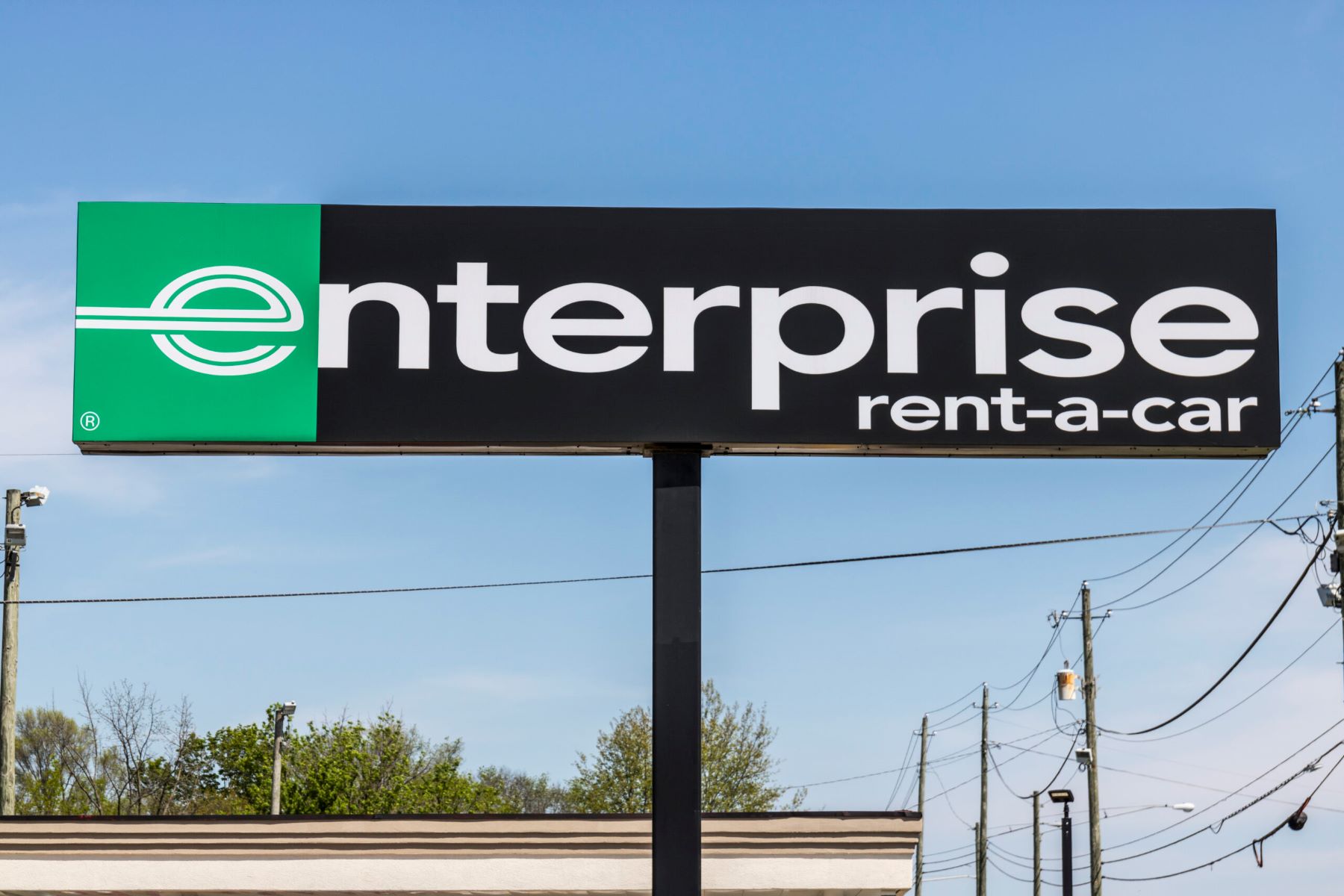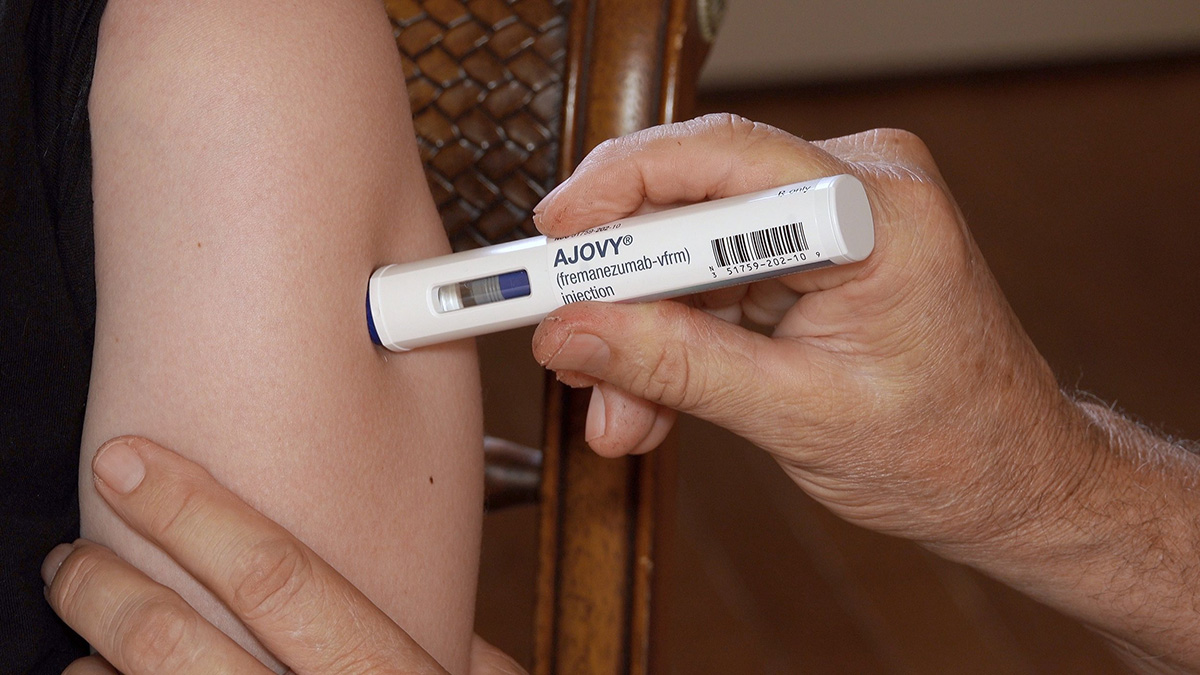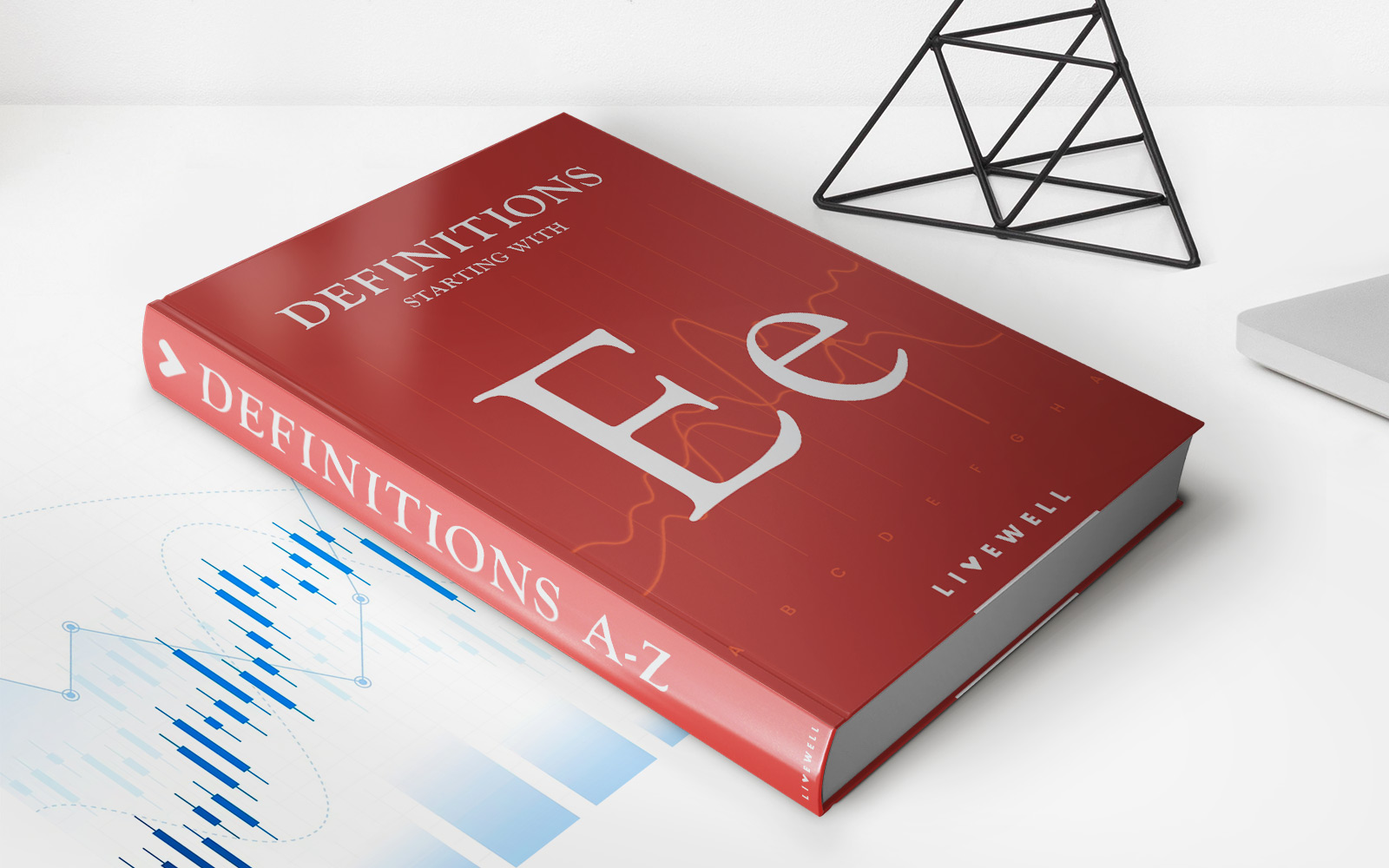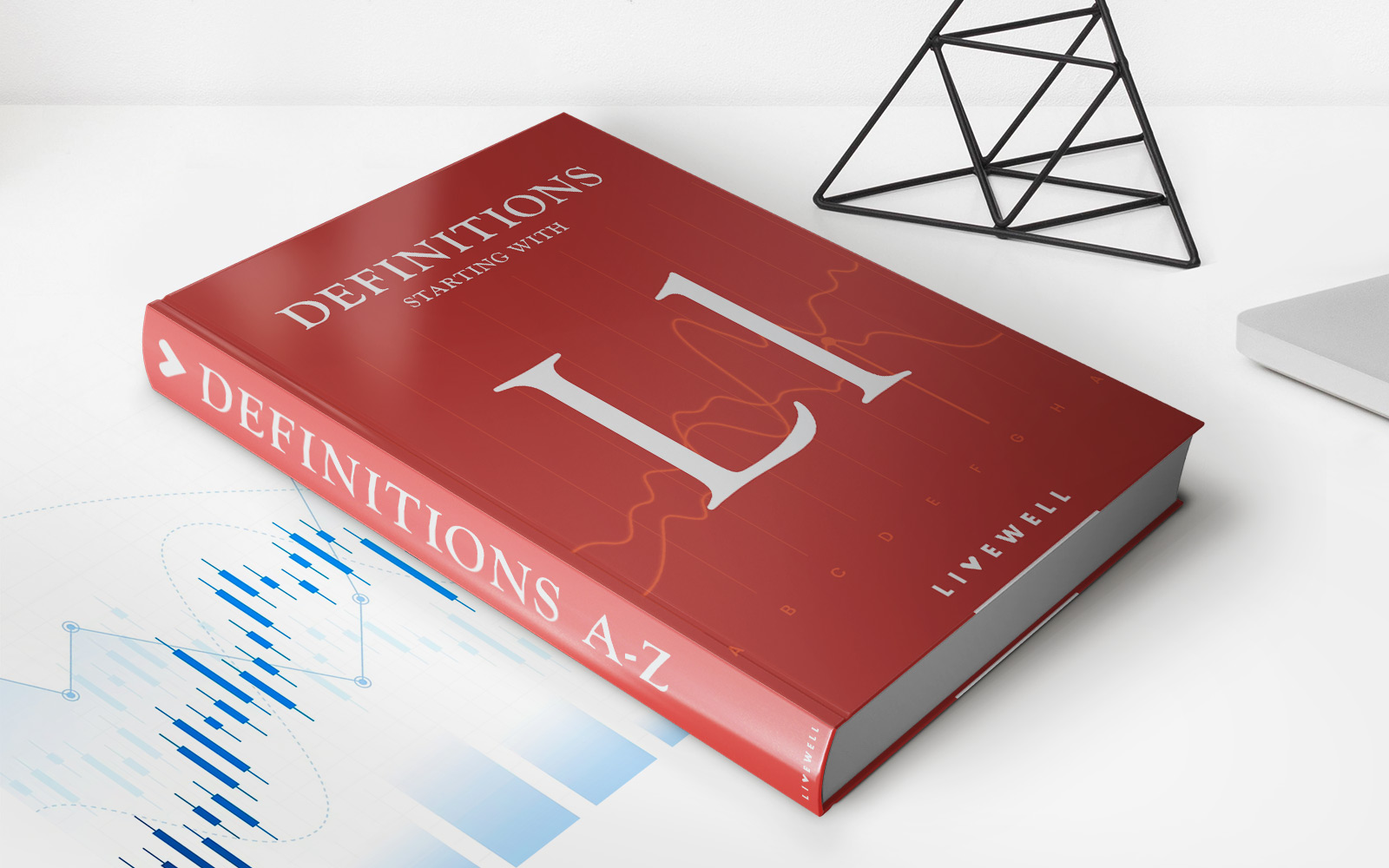

Finance
How Much Is Insurance At Enterprise?
Published: November 21, 2023
Looking for information about insurance rates at Enterprise? Find out how much insurance at Enterprise costs and get your finances in check.
(Many of the links in this article redirect to a specific reviewed product. Your purchase of these products through affiliate links helps to generate commission for LiveWell, at no extra cost. Learn more)
Table of Contents
- Introduction
- Factors Affecting Insurance Rates at Enterprise
- Types of Insurance Offered by Enterprise
- Liability Coverage Options
- Collision Damage Waiver
- Personal Accident Insurance
- Supplemental Liability Protection
- Roadside Assistance
- How to Estimate Insurance Cost at Enterprise
- Tips to Save Money on Insurance at Enterprise
- Conclusion
Introduction
When renting a car from Enterprise, it’s important to consider the cost of insurance. Auto insurance protects you in case of accidents, damages, or theft while you’re behind the wheel. However, many people are unsure about how much insurance coverage they need and how it impacts the overall cost of renting a car.
In this article, we will explore the factors that affect insurance rates at Enterprise, the types of insurance options available, and how to estimate the cost of insurance. We will also provide some tips to help you save money on insurance when renting a car from Enterprise.
Understanding the insurance options and costs can help you make an informed decision and have peace of mind during your car rental experience.
Note: Insurance rates may vary depending on your location, the type of vehicle you are renting, and your driving history. It’s always a good idea to check with Enterprise directly to get accurate and up-to-date information.
Factors Affecting Insurance Rates at Enterprise
Several factors can influence the insurance rates when renting a car from Enterprise. It’s important to understand these factors to better estimate the cost and choose the right insurance coverage for your needs. Here are the key factors:
- Age and Driving Experience: Younger drivers, typically under the age of 25, may be charged higher insurance rates due to their lack of driving experience and higher risk of accidents. Additionally, drivers with a history of accidents or traffic violations may also face higher insurance rates.
- Location: Insurance rates can vary depending on the location where you rent the car. Areas with higher crime rates or a higher risk of accidents may result in higher insurance premiums.
- Type of Vehicle: The make, model, and value of the rental car can impact the insurance rates. Luxury or high-performance vehicles may have higher insurance costs due to their higher repair and replacement costs.
- Duration of Rental: The length of your rental period can affect insurance rates. Longer rental periods may result in higher insurance costs.
- Insurance Coverage Selection: The level of coverage you choose will also impact the insurance rates. Different insurance options have different costs and levels of protection.
These factors collectively contribute to the calculation of insurance rates when renting a car from Enterprise. It’s essential to consider these factors and assess your own circumstances to make an informed decision about the type and level of insurance coverage you need.
Types of Insurance Offered by Enterprise
When renting a car from Enterprise, you have several insurance options to choose from. Understanding the different types of insurance coverage can help you select the right level of protection for your needs. Here are the common types of insurance offered by Enterprise:
- Liability Coverage: Liability coverage protects you in case you cause damage to someone else’s property or injure someone while driving the rental car. This coverage is often required by law and typically includes both bodily injury liability and property damage liability.
- Collision Damage Waiver (CDW): A collision damage waiver protects you against damage to the rental car due to accidents or collisions. It usually waives your financial responsibility for the repair or replacement costs of the vehicle.
- Personal Accident Insurance: Personal accident insurance provides coverage for medical expenses and accidental death benefits for you and your passengers if you’re involved in an accident while driving the rental car.
- Supplemental Liability Protection (SLP): SLP provides additional liability coverage beyond the limits of basic liability coverage. It offers increased protection in case of significant damage or injuries that exceed the standard liability coverage limits.
- Roadside Assistance Protection: Roadside assistance protection provides 24/7 support in case of a breakdown, flat tire, lockout, or other emergencies while driving the rental car. It can help cover the costs of services like towing or locksmith assistance.
It’s important to carefully review and understand the terms and limitations of each insurance option before making a decision. Consider your own insurance coverage, credit card benefits, and personal circumstances to determine which coverage is necessary for your rental period.
Note: Coverage options and terminology may vary depending on the location and specific Enterprise branch. Always consult with Enterprise directly for accurate and up-to-date information.
Liability Coverage Options
Liability coverage is an essential type of insurance when renting a car from Enterprise. It protects you in case you cause damage to someone else’s property or injure someone while driving the rental car. Enterprise offers two main liability coverage options: primary liability and supplemental liability protection (SLP).
Primary Liability: Primary liability coverage is the basic level of coverage that meets the minimum legal requirements. It provides protection for third-party bodily injury and property damage claims up to the specified limits. The specific coverage limits may vary depending on the location and local regulations.
Supplemental Liability Protection (SLP): SLP is an optional coverage that provides additional liability protection beyond the limits of primary liability coverage. It increases the policy limits and offers enhanced protection in case of significant damage or injuries that exceed the standard liability coverage limits.
When deciding on liability coverage, consider your own insurance coverage and personal circumstances. If you have sufficient liability coverage through your personal auto insurance or credit card benefits, you may choose to rely on that instead of purchasing additional coverage from Enterprise.
However, if you have minimal or no personal liability coverage, or if you want extra peace of mind, purchasing SLP can be a wise choice. It offers an added layer of protection against costly lawsuits and claims.
Keep in mind that liability coverage only protects you against claims made by third parties. It does not cover damages to the rental car itself. For that, you may need additional coverage such as a collision damage waiver (CDW) or personal accident insurance.
It’s important to carefully review the terms and conditions of liability coverage options and consult with Enterprise to understand the specific details, coverage limits, and any exclusions that may apply.
Collision Damage Waiver
A collision damage waiver (CDW) is an insurance option offered by Enterprise that protects you against damage to the rental car due to accidents or collisions. It provides peace of mind by waiving your financial responsibility for the repair or replacement costs of the vehicle.
Here are some key points to know about CDW:
- Financial Protection: With a CDW, you won’t be held accountable for paying for the damages to the rental car if it gets damaged during your rental period. This can be particularly valuable if you are concerned about the cost of repairs or if you are renting a high-value vehicle.
- Flexibility and Convenience: By opting for a CDW, you can avoid dealing with the hassle and paperwork associated with filing a claim with your personal auto insurance provider in case of an accident during your rental period. It can provide quicker and more straightforward resolution in case of damages.
- Exclusions and Limitations: While a CDW offers valuable protection, it’s important to understand that there may be exclusions and limitations in the coverage. For example, it may not cover damage caused by reckless driving, driving under the influence, or driving on unpaved roads. Review the terms and conditions of the CDW carefully to ensure you are aware of any limitations.
- Deductibles: Some CDW policies may still come with a deductible, meaning you would be responsible for paying a certain amount towards damages before the insurance coverage kicks in. Be sure to inquire about the deductible amount when considering CDW.
It’s important to note that a CDW is optional and comes with an additional cost. However, it can provide valuable protection and peace of mind during your rental period.
Before deciding on whether to purchase a CDW, it’s essential to review your own personal auto insurance policy and any credit card benefits you may have. Some personal auto insurance policies or credit card companies may provide coverage for rental cars, potentially reducing the need for a CDW. However, be sure to carefully understand the specific terms, limits, and requirements of your existing coverage before relying on it.
Talking to a representative at Enterprise can help you make an informed decision about whether to purchase a collision damage waiver based on your individual circumstances and risk tolerance.
Personal Accident Insurance
Personal accident insurance is an optional coverage offered by Enterprise that provides protection for medical expenses and accidental death benefits in the event of an accident while driving the rental car. It is designed to offer you and your passengers additional financial security in case of injuries or fatalities.
Here’s some key information about personal accident insurance:
- Medical Expense Coverage: Personal accident insurance can help cover medical expenses if you or your passengers sustain injuries during an accident. This may include hospital bills, doctor’s fees, and other necessary medical treatments.
- Accidental Death Benefits: In the unfortunate event of a fatal accident, personal accident insurance can provide accidental death benefits to the designated beneficiaries. These benefits can provide financial support during a difficult time.
- Supplemental Coverage: Personal accident insurance is supplementary to any existing health insurance you may have. It provides an extra layer of protection specifically for accidents that occur while driving the rental car.
It’s important to note that personal accident insurance is optional and comes at an additional cost. Before deciding whether to purchase this coverage, consider the following factors:
- Existing Health Insurance: Review your existing health insurance policy to understand if it covers injuries sustained in accidents, including accidents that occur while driving a rental car. If your health insurance already provides adequate coverage, personal accident insurance may be unnecessary.
- Travel Insurance or Credit Card Benefits: Check if you have any travel insurance or credit card benefits that may offer coverage for rental car accidents. Some credit cards provide automatic rental car insurance benefits, including coverage for medical expenses and accidental death benefits.
- Risk Tolerance: Consider your personal risk tolerance and the potential financial impact of an accident. If you prefer having an additional layer of protection and want to minimize out-of-pocket expenses in case of an accident, personal accident insurance can offer peace of mind.
To make an informed decision about purchasing personal accident insurance, it’s a good idea to review your existing insurance policies and consult with Enterprise to understand the specific details, coverage limits, and any exclusions that may apply.
Supplemental Liability Protection
Supplemental Liability Protection (SLP) is an optional insurance coverage offered by Enterprise that provides additional liability protection beyond the limits of primary liability coverage. SLP offers enhanced coverage and increased peace of mind in case of significant damage or injuries that exceed the standard liability coverage limits.
Here are some important points to know about SLP:
- Extended Liability Coverage: SLP increases the amount of liability protection you have while driving the rental car. This coverage helps protect you against lawsuits or claims made by third parties for bodily injury or property damage caused by an accident.
- Higher Coverage Limits: SLP typically provides higher policy limits than the basic primary liability coverage. The exact coverage amounts may vary, so it’s important to review the terms and conditions specific to the SLP policy offered by Enterprise.
- Protection Against Costly Claims: SLP can be particularly valuable if you are concerned about the potential financial impact of a severe accident. It provides an extra layer of coverage to mitigate the risk of substantial claims that may exceed the limits of primary liability insurance.
- Exclusions and Limitations: Like any insurance coverage, SLP may have certain exclusions, limitations, and conditions. It’s essential to carefully review the terms and conditions of the SLP policy to understand the specific details and any exclusions that may apply.
SLP is optional and comes with an additional cost. Before deciding whether to purchase SLP, consider the following factors:
- Personal Liability Coverage: Review your personal auto insurance policy to understand your existing liability coverage. If your personal policy already provides adequate liability protection, you may not need to purchase SLP.
- Credit Card Benefits: Some credit cards include rental car insurance benefits that may offer supplemental liability protection. Check with your credit card provider to understand if you have any coverage already in place.
- Risk Assessment: Consider your individual circumstances and tolerance for risk. If you want the peace of mind of having higher liability limits and additional protection against costly claims, SLP can be a valuable addition.
When making a decision about purchasing supplemental liability protection, it’s always a good idea to consult with Enterprise to understand the specific terms, coverage limits, and any exclusions that may apply.
Roadside Assistance
Roadside assistance is a beneficial service offered by Enterprise that provides 24/7 support in case of a breakdown, flat tire, lockout, or other emergencies while driving the rental car. This service can offer peace of mind and help ensure a smooth and hassle-free rental experience.
Here’s what you need to know about roadside assistance:
- Emergency Services: Roadside assistance typically includes services such as towing, jump-starting a dead battery, changing a flat tire, or assisting with lockouts. These services can help get you back on the road quickly and safely in case of an unexpected event.
- 24/7 Availability: Roadside assistance is available round-the-clock, ensuring that help is always just a phone call away, no matter the time or location.
- Convenience and Peace of Mind: Knowing that you have access to roadside assistance can provide peace of mind during your rental period. It can reduce stress and inconvenience if you encounter any unexpected vehicle issues.
- Additional Fees: Roadside assistance is an optional service and may come with an additional daily or per-incident fee. The cost and specific terms of roadside assistance may vary depending on the location and rental agreement.
Before deciding on whether to opt for roadside assistance, consider these factors:
- Existing Roadside Assistance: Check if you have any existing roadside assistance coverage through your auto insurance, credit card benefits, or membership with an automobile association. If you already have coverage, you may not need to purchase this additional service.
- Travel Plans and Rental Location: If you are planning to travel long distances or in unfamiliar areas, roadside assistance can be particularly valuable. It provides added support and quick resolution in case of unforeseen incidents on the road.
- Risk Tolerance: Assess your personal risk tolerance and consider the potential inconvenience or costs of dealing with a roadside emergency without assistance. If you prefer having professional help readily available, roadside assistance can be a worthwhile investment.
When considering whether to purchase roadside assistance, it’s recommended to evaluate your personal circumstances, travel plans, and the specific terms and cost of the service offered by Enterprise.
Remember that roadside assistance is designed to handle unexpected emergencies, not routine maintenance or repairs. Always keep the rental car in good condition and report any mechanical issues promptly to Enterprise during your rental period.
How to Estimate Insurance Cost at Enterprise
Estimating the insurance cost when renting a car from Enterprise can help you budget for your trip and make informed decisions about the level of coverage you need. While exact rates may vary depending on various factors, here are some steps to help you estimate the insurance cost:
- Check Enterprise’s website: Visit Enterprise’s website or contact their customer service to get information about the insurance options they offer and their corresponding costs. Enterprise may provide a breakdown of the insurance coverage options and their associated daily or weekly rates.
- Consider your coverage needs: Assess your own insurance coverage, including any personal auto insurance or credit card benefits that may extend to rental cars. Determine what coverage you already have and what additional protection you may need.
- Evaluate the rental period: Longer rental periods generally result in higher insurance costs. Consider the duration of your rental and factor in the daily or weekly insurance rates to estimate the total insurance cost.
- Think about the car type: The make and model of the rental car can affect the insurance cost. Luxury or high-end vehicles may have higher insurance rates due to their higher repair and replacement costs.
- Consider your driving history: Your driving history can impact the insurance rates. If you have a history of accidents or traffic violations, you may face higher insurance costs.
- Location: Insurance rates can vary based on the location where you rent the car. Areas with higher crime rates or higher risk of accidents may result in higher insurance premiums.
Keep in mind that these steps provide a general framework for estimating insurance costs. Actual rates can be influenced by additional factors and specific rental agreements. It’s always best to contact Enterprise directly for accurate and up-to-date information regarding insurance costs.
Remember, insurance is an important aspect of your rental car experience, as it provides financial protection and peace of mind. By estimating the insurance cost in advance, you can budget accordingly and make an informed decision about the coverage options that best suit your needs.
Tips to Save Money on Insurance at Enterprise
While insurance is an important aspect of renting a car from Enterprise, there are several ways you can save money on insurance costs. Here are some tips to help you minimize the insurance expenses:
- Review your existing coverage: Before opting for insurance from Enterprise, check your personal auto insurance policy and credit card benefits. You may already have coverage that extends to rental cars, reducing the need for additional insurance.
- Choose the right coverage: Assess your own needs and consider the level of coverage that is most appropriate for your rental period. If you have an existing insurance policy with adequate coverage, you may choose to decline certain options offered by Enterprise.
- Consider your driving habits: If you’re a safe driver with a good track record, it may be worth reviewing your driving history. Some insurance providers offer discounts for drivers with a clean record, which can help reduce your insurance costs.
- Opt for a higher deductible: A deductible is the amount you agree to pay out-of-pocket in case of an insurance claim. Choosing a higher deductible may lower your insurance premium. However, ensure you can afford the deductible amount if an incident occurs.
- Utilize memberships and affiliations: Some organizations, such as automobile clubs, may offer insurance benefits or discounts to their members. Check if you are eligible for any such discounts through your membership or affiliation.
- Consider liability coverage alternatives: If you already have sufficient liability coverage from your personal insurance policy, you may opt for the primary liability coverage offered by Enterprise instead of the supplemental liability protection (SLP). This can help save on insurance costs.
- Shop around: Don’t hesitate to explore other insurance providers or compare rates from different rental car companies. You may find better deals or discounts that can help reduce your insurance costs.
Remember, while it’s important to save money on insurance, ensure that you have sufficient coverage to protect yourself from potential risks and liabilities. Determine your personal comfort level and assess the value of the coverage options provided by Enterprise before making a decision.
By following these tips and being proactive in managing your insurance costs, you can maximize savings while maintaining the necessary coverage when renting a car from Enterprise.
Conclusion
Insurance is a crucial consideration when renting a car from Enterprise. Understanding the factors that affect insurance rates and the different insurance options offered can help you make informed decisions to protect yourself and your rental car.
Factors such as age, location, driving experience, and the type of vehicle can influence insurance rates. By considering these factors, you can estimate the insurance cost and select the coverage options that best suit your needs.
Enterprise offers various types of insurance, including liability coverage, collision damage waiver (CDW), personal accident insurance, supplemental liability protection (SLP), and roadside assistance. It’s important to carefully review these options, evaluate your existing coverage, and determine the level of protection required for your rental period.
To save money on insurance at Enterprise, consider reviewing your existing coverage, choosing the appropriate level of coverage, and exploring discounts through memberships and affiliations. Shopping around and comparing rates can also help you find the best deal.
Remember, insurance provides financial security and peace of mind during your car rental experience. Take the time to understand the terms and conditions of the insurance options and consult with Enterprise directly for accurate and up-to-date information.
By following these guidelines, you can navigate the insurance process at Enterprise with confidence, ensuring that you have the necessary coverage while saving money on insurance costs. Enjoy your rental car experience with the peace of mind that comes from being properly insured!














